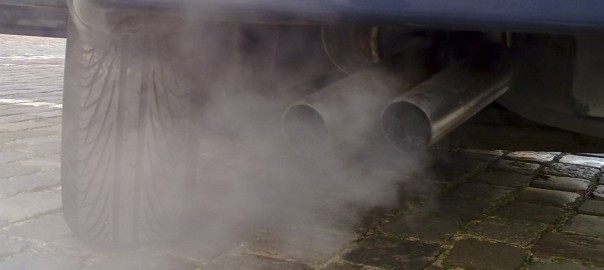Islington Council votes for a £96 additional ‘diesel’ charge for resident parking permits
Islington Council in north London is thought to have become the first local authority to put a surcharge on the ownership of diesel-powered vehicles. On 15 January, the 48 members of the council (47 Labour and 1 Green) voted to increase the cost of a parking permit by £96 per year for all diesel vehicles registered with the borough.
If the vote is carried through the three-day ‘cooling off’ period, the charges will begin in April.
While London black cabs will be exempt in the Islington scheme, commercial vehicles with more than a 3.5-tonne overall weight will only be considered for exemptions on a ‘case-by-case’ basis.
Islington isn’t the first council to introduce surcharges for diesel vehicle parking permits. Kensington and Chelsea introduced an £18 surcharge, but it exempted diesel cars with newest Euro 5-rated engines.
However, the ‘blanket’ nature of the surcharge in Islington has sounded alarm bells within the car industry, sources have told Autocar.
It is feared that moves against all diesel vehicles – rather than just the oldest and most polluting examples – will be the beginning of a demonization of diesel as a fuel and seriously hamper the car industry’s attempts to meet the 2020 EU fleet laws for CO2 emissions.
Just ahead of the council vote, the Society of Motor Manufacturers and Traders (SMMT) wrote to the Islington Council executive to argue against the surcharge plans.
The SMMT said:
“We are concerned that the proposals to levy a £96 surcharge on parking permits for all diesel vehicles are disproportionate and do not recognise the huge technological advances made in recent years to make diesel vehicles cleaner,
“Intelligent engine design and highly efficient exhaust after-treatments, including particulate filters, now capture more than 99 per cent of particulates and around two-thirds of NOx emissions from diesel vehicles.
“The diesel surcharge will discourage uptake of the very latest diesel vehicles and could threaten further improvements in air quality and efforts to reduce CO2 emissions.
“We urge you to reconsider this proposal and would welcome a meeting with you and colleagues at your earliest convenience to discuss how technology is delivering improvements in air quality and CO2.”
Ford – which has just opened a new facility in Dagenham to build the latest-generation diesel engines – is also thought to have strongly backed the SMMT’s stance.
Recent publicity, especially in the capital, about the levels of particulate and nitrogen oxide pollution is starting to shift sentiment against diesel power, while London mayor Boris Johnson is consulting on his plans for an ‘Ultra Low Emission Zone’, which would cover central London and run on a ‘24/7′ basis from 7 September 2020.
Many in the automotive world fear that this means no diesel vehicle would be allowed into central London by the end of the decade, aside from diesel-electric hybrid buses. Such developments in the capital usually heavily influence thinking around the rest of the country.
Source: Autocar
